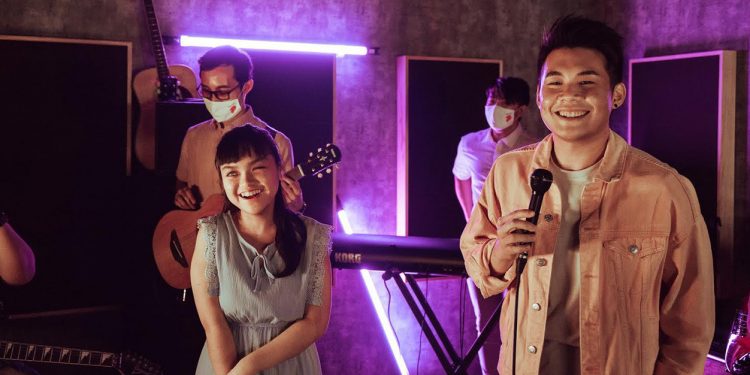TheHomeGround Asia sits down with Ron Tan, deaf pianist and founder of the Inclusive Arts Movement, and differently abled dancer Reuben Khanal (and his mum Linda) to talk about what the arts means to them, what keeps them going in the face of adversity, and what we can do to foster a more inclusive society.
‘Inclusivity’ and ‘diversity’ have become the buzzwords of the 21st century. But to social entrepreneur Ron Tan, these terms are more than a passing fad; they are a life-guiding philosophy.
Born with 80 percent hearing loss, 29-year-old Mr Tan has endured more than his fair share of critics and naysayers in his nearly three decades of life, including being told that learning an instrument was an absurd ambition for a deaf person. But the homegrown musician, who taught himself to play the piano in his late teens, has proven them all wrong.
Indefatigable in the pursuit of his passion for music, Mr Tan never gave up on his dream, defying the odds (and the doubters) to, among various accomplishments, graduate from a music school, perform on stage to rousing applause, and establish the Inclusive Arts Movement (I.AM).
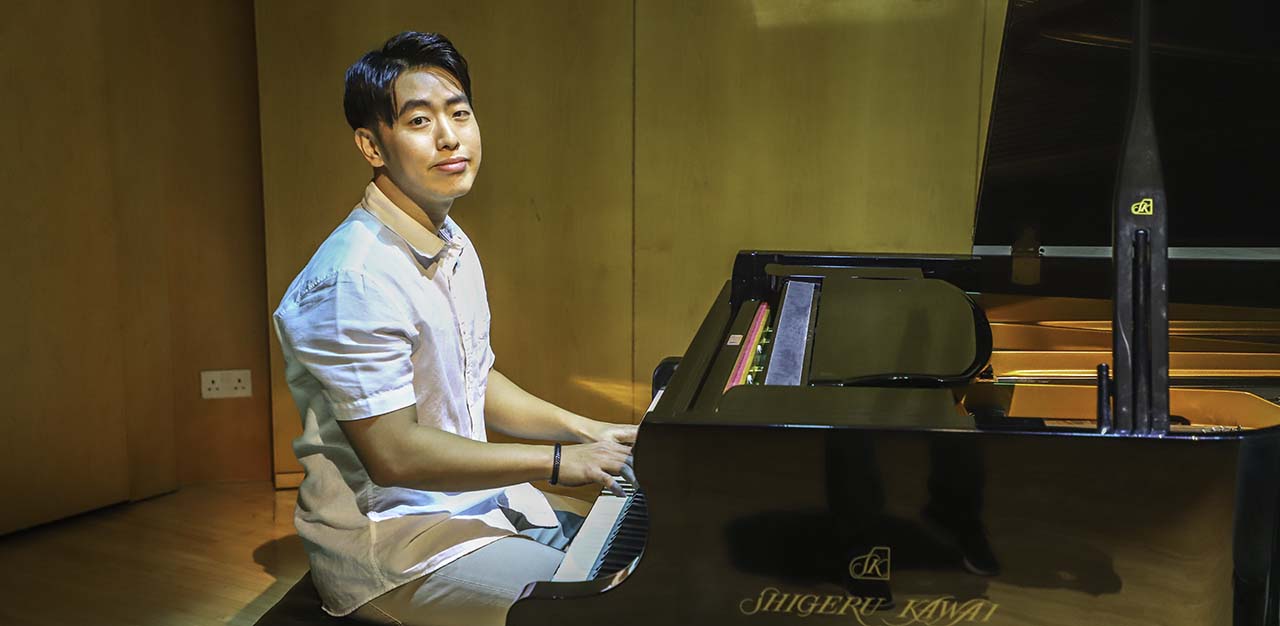
Founded in 2013, I.AM is a social enterprise dedicated to advancing an inclusive and integrated society through the performing arts. The organisation aims to elevate the profile of differently abled talents and to provide them with a sustainable income via performance opportunities, as well as to serve as a platform for the differently and generally abled to bond through a shared love of music, dance and more.
After an extended hiatus, I.AM returned in 2019 with a renewed vision and a reinvigorated sense of purpose. Expanding its repertoire to include educational workshops and music videos, I.AM now boasts a 30-strong (and growing) community of creatives from a diversity of backgrounds.
Even a global pandemic could not dampen Mr Tan’s enthusiasm for the cause. Cognisant of Covid-19’s detrimental impact not only on the arts and culture sector, but also on people with disabilities (PWDs), Mr Tan doubled down on his efforts and dug deep into his own pockets to produce a stay-home music video. He went so far as to drive across the island to deliver recording equipment to each I.AM member. The outcome? A soul-stirring rendition of This Is Me from movie musical The Greatest Showman and How Far I’ll Go from animated film Moana, powerfully delivered by a band of differently and generally abled musicians.
Following the success of this debut music video, which amassed nearly 45,000 views on Facebook, I.AM has dropped a string of new music videos. These include a cover of another hit from The Greatest Showman, A Million Dreams, headlined by vocalists Adelyn Koh (who was born with a congenital eye condition called Peters anomaly) and Dominic Chin; and a remix of Friends by dance-pop artist Sasha M, featuring the local singer-songwriter alongside rapper AngelK and Reuben Khanal, a dancer with Down syndrome and some seriously slick moves.
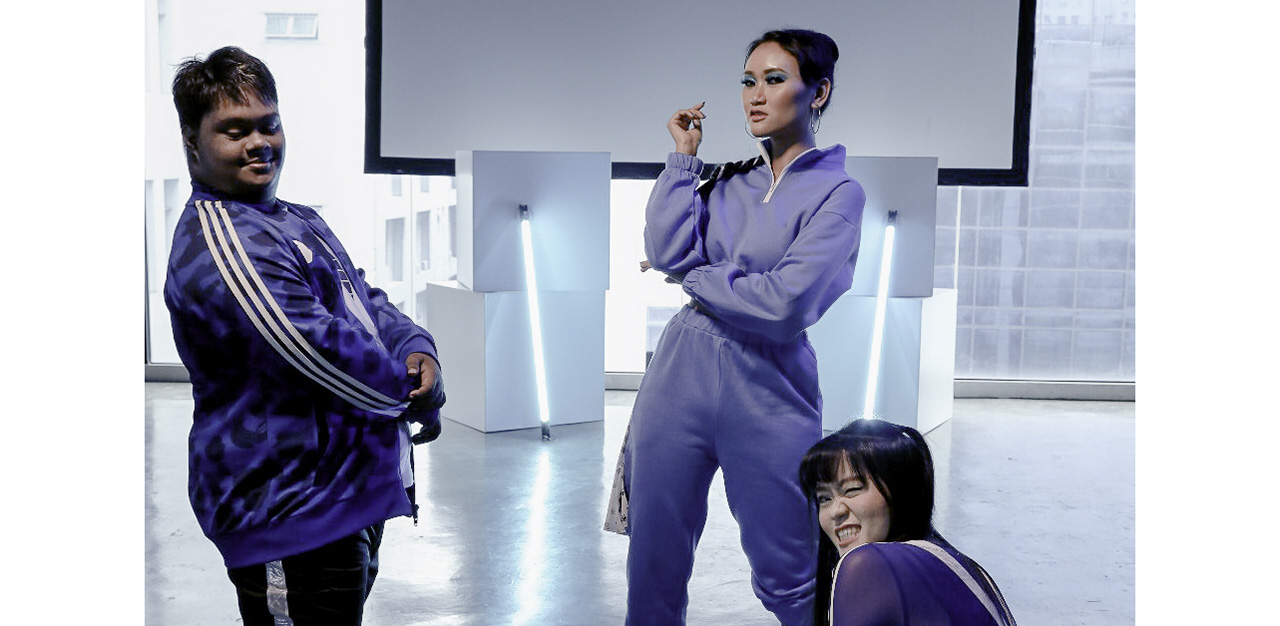
Ahead, TheHomeGround Asia sits down with Mr Tan and Mr Khanal to talk about what the arts mean to them, what keeps them going in the face of adversity, and what we can do to foster a more inclusive society.
NOTE: This interview has been edited for clarity and length.
Ron Tan: I am 80 per cent deaf. I usually start off with that [fact], because that’s the whole reason why I [founded] the Inclusive Arts Movement.
Being 80 per cent deaf, from young [I experienced] a lot of bullying, a lot of discrimination. When I was in school, I was the person nobody want to be friends with, because I am different from other people. It led me to become a person who is very sensitive to what other people say, feel and think about me. But along the way, I learnt to be less self-centred and more aware of my surroundings, so that I am less affected by opinions about me.
Reuben Khanal: I’m Reuben, I’m 21 years old, I [was born in] the Year of the Rabbit. I love to dance! I’m a good dancer. And I love music, I listen to music all day.
TheHomeGround Asia: What motivated you to start a social enterprise like I.AM?
RT: With I.AM, my thought was just to bring musicians on the streets to busk. But then I realised I could do more. Together with Benjamin [Chong, who sustained severe head injuries in a hit-and-run accident when he was 14], we started to perform regularly in the Changi Village hotel. I had people coming to tell us that we played beautiful music, so that was the [genesis] of I.AM, because it [showed] me that it is possible to bring [PWDs] on stage and show people that we are able – that’s why we are called differently abled.
To talk about how I was inspired to start this movement, I would go back to polytechnic, when I joined [the] piano club. In the club, there were people who said I couldn’t play the piano because I’m deaf… who said I shouldn’t perform on stage… organise a concert. But I did. That [concert] was my very first experience [of live performance], and [although] I screwed up here and there, I learned a lot.
But how people took it was very different. I don’t blame them, but it was a period that’s very difficult to forget. I didn’t give up, however, and I would stay on in the piano club until late at night [to practise]. When [everyone else] had left, I would play as loudly as I could to identify whatever gaps [in the music] I could feel.
In the end, I made it. I performed my first composition on stage, although it wasn’t perfect. But the best thing happened after the concert was over… When I finished my performance, everyone stood up and clapped, but I thought that they were just being polite. But then, three people came over to me – I later found out they were classically trained pianists – and asked me for the score sheet [to my composition]. I told them I didn’t have a score sheet because it was all in my head. Every night I would sit down and play, and all the emotions [I felt], I just reflected them onto the piano. I felt the vibration of the piano, and that vibration gave me the inspiration to play the melody. I can’t really explain how it happens, it just happens. I recently did a music video of that song.
THG: The Bridge of Freedom?
RT: Yes. I went on to meet people like Benjamin and James [Lau, a drummer who has arthrogryposis]. We decided to come together as a band, but I felt there was something missing. I reflected on what I considered to be my vision and mission, and I decided to bring differently and generally abled individuals together in a band to perform and to show others that two different groups of people can work [hand-in-hand].
We started off with [live] performances, but [there was] not enough traction, because people [would] see the performance and forget [about it] the next day. So I came up with the [idea of a] workshop. The reason a workshop is important is because everybody is so busy, no one takes the time to understand and to think of how to include people like us in society. Only people who feel the pain of being excluded would extend their efforts to think of such solutions.
I would like to talk about pain points. For example, my pain points are that I was badly bullied, I was discriminated [against] etc. But, of course, I can’t expect other people to feel [my] pain and do something about it. So I asked myself, what can I do about it and what do people want? People want to hear stories. Through the Inclusive Arts Workshop, we offer that whole experience to any company that wants to [engage in] team-building.
THG: So these are corporate workshops?
RT: Yes. [The workshops are open to] anyone who is interested in an inclusive team-building experience.
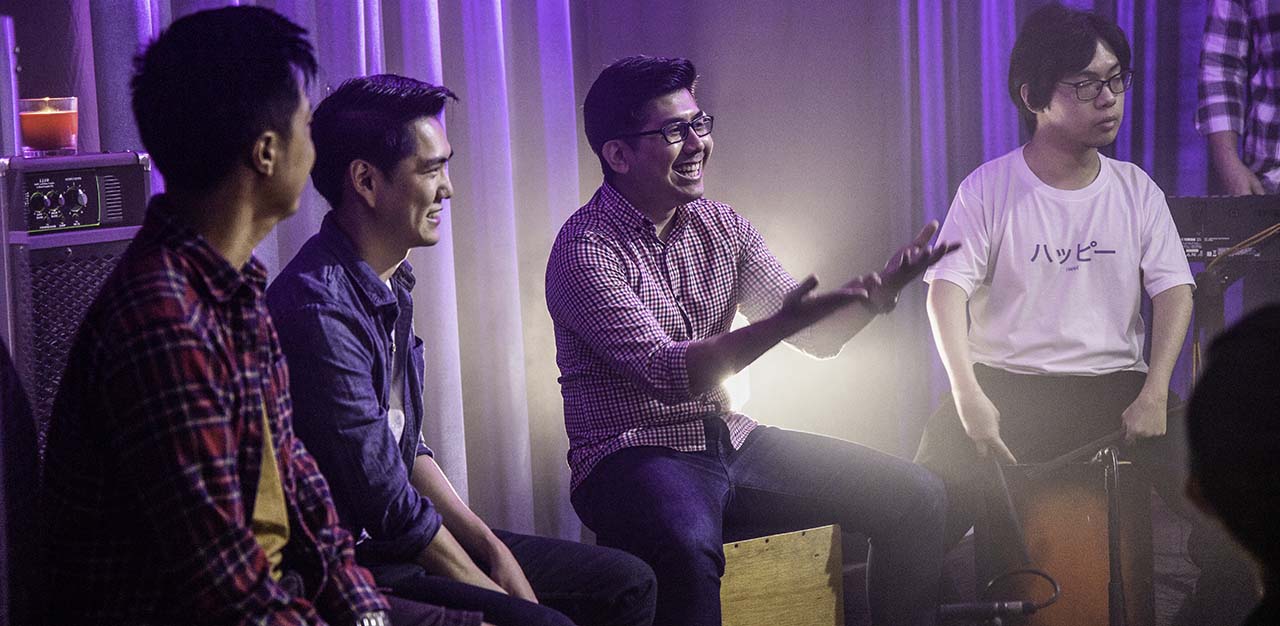
THG: In your video on the Inclusive Arts Workshop you give participants a choice of three instruments; ukulele, cajon and piano. Why those three instruments in particular?
RT: They’re the easiest to pick up!
We want people to be involved in the experience, to learn a musical instrument, to be able to perform, but most importantly, to make friends with people like us. Before the workshop begins, we give [participants] the opportunity to ask difficult questions, like, ‘How do I communicate with people who are deaf?’ And so on. Where else would you get the opportunity [to ask these questions]?
THG: Yes, I think most people would be afraid to ask, especially because of the current preoccupation with political correctness.
RT: It’s [a] sensitive [topic]. But I have to say that it takes two hands to clap. It doesn’t mean that just because [people] use the wrong terms [to talk] about us, they are in the wrong. We must also [ask], as differently abled individuals, how much [effort] do we [put in] to help people understand us?
Honestly, I make mistakes, but I learn along the way. We have to accept the fact that everybody makes mistakes, we have to accept the fact that everybody learns along the way. I always tell my performers, be empathetic, [because] it takes two hands to clap.
THG: Could you tell us more about the music videos?
RT: The music videos are non-profit – I even pay out of my own pocket to cover some [of the costs]. [Since] we want to share [our music] with people through the digital medium, I thought, ‘Why not try this out?’ Last year, because of the pandemic, we had zero [live] performances, so we converted to producing music videos.
We’ve done five: This Is Me, A Million Dreams, Bridge of Freedom, the Inclusive Arts Workshop music video, and Friends. We’re still planning our sixth one, which will cover The Chronicles of Narnia soundtrack. We want to have three deaf pianists play an orchestral version of the theme song.
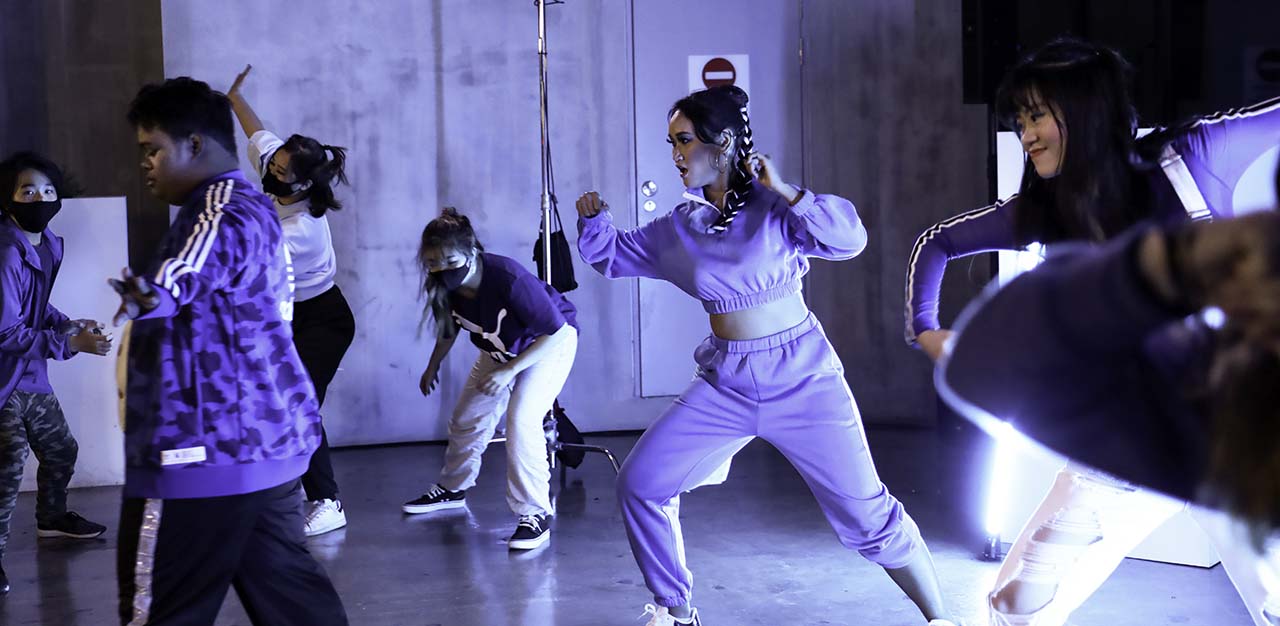
THG: What does music and/or dance mean to you?
RT: Because of everything that was going on, I almost gave up on life, but music help me to come back. The song, Bridge of Freedom, was composed on the very bridge where I felt like giving up. I played this melody, and it turned out to be a beautiful piece of music, [which] my good friend encouraged me to keep working on. I thought, okay, maybe [I’ll] try, and that’s where I started defining [my] self-worth. So that’s what music means to me.
RK: It’s my dream! [When I dance], it’s a dream come true!
THG: What was a highlight of the past year for you?
RK: When I danced with Sasha M [in the remix of “Friends”].
THG: How do you think the arts serves as a bridge between the differently- and generally-abled?
RT: Actually, it’s not only the arts. As long as there is something that everybody enjoys doing together, it can serve as a bridge [between people].
THG: Would you also be open to working with people with mental disorders?
RT: Anything can work out. It’s just about exploring and trying. If you don’t try, then you’ll never know. Whether I can help or not, I will try to do my best for them. If I.AM is not meant for them, that’s fine. I don’t bind any of them with a contract. Whatever they want to do, go ahead. I may run a social enterprise, but I’m not here to make money.
THG: What direction are you planning to take I.AM in?
RT: Right now, we’re still [discussing] whether we want to [remain] a social enterprise or become a charity. We are still learning, we are still studying, we are still trying to understand both models, so I can’t really say [where I.AM will head in the future].
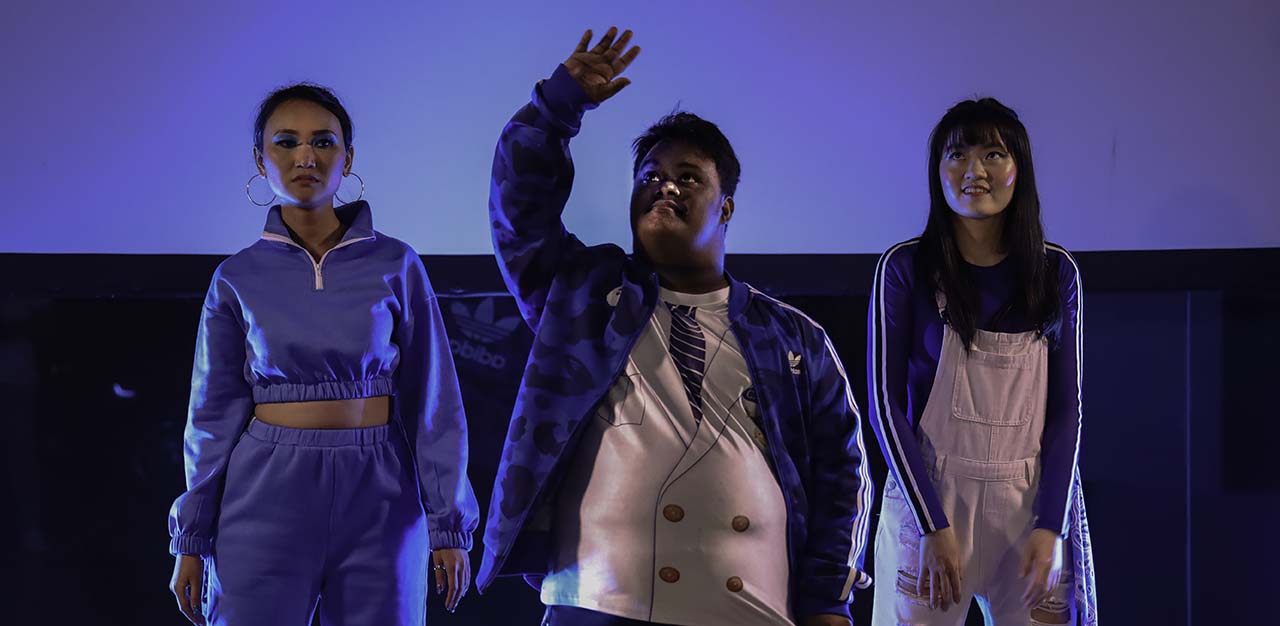
THG: What motivates you to keep going despite the challenging circumstances?
RT: [My] pain points and doing what [I] love. We only live life once, and [I] want to do things such that I won’t have any regrets. I hear many stories about people regretting at the end of their lives. As long as there is a moment of pleasure, I will treasure it. Moments like the dance video [of Friends], I will remember for life.
THG: You worked with Sasha M and AngelK on Friends. Are there any music artists you’d like to collaborate with in the future?
RT: I always ask my performers the same question: ‘Who do they wish to work with?’ For example, [with] Sasha M, I sent [her] music to Linda [Reuben’s mother] and Reuben liked Friends, so I said, okay, we will [cover] that song.
I haven’t really asked the rest, but my point here is that I always ask who they want to work with. As for myself, I don’t really [have anyone in mind]. But, of course, I welcome anyone who has a big platform [and] a lot of followers to come forward and be a part of this movement, so that we can shout out [our] message a lot [louder].
THG: What else do you think can be done to build bridges between the differently and generally abled?
RT: Bringing communities together and building awareness, preferably through a large platform. That’s why we’re thinking of [becoming a] charity, [because if we have] someone to support us, [then we] can create a bigger platform.
We also need more people to be brave. If they have pain points step up and do something about it, instead of just waiting for something to happen.
Linda Khanal (Reuben’s mother): I was thinking about [what can be done] to change the mindset of the working [population], and corporate social responsibility [could be a way to raise] awareness.
The Singapore [Government] is trying to use an incentive [to raise awareness of the cause]. For example, if a company [organises] bowling and they invite special needs children to join them, the Government will [offer] them incentives, like tax deductions. Even if, at first, they’re just thinking of saving on taxes, once they’re involved with special needs children, it changes them and they become open.
When you bring these children [with special needs] out and acquaint them [with other people], the community will, in turn, understand that they need exposure, [and] lots of help. [We can’t] just [confine] them to one place. It doesn’t work.
RT: [It’s] so you know what you’re capable of. [For instance], during the Friends video, I kept telling Reuben that I believe in him. This whole idea started many years ago. When Reuben went on stage [to dance], everybody in the audience was cheering and clapping for him, and nobody [guessed] that he has Down syndrome, nobody. That tells me it’s possible, and [we need] more exposure.
The Friends music video also helped Reuben to feel a lot better. The objective of that dance video was to give Reuben more opportunities to get engaged by clients and to perform; sustainability, in other words. To be honest, the process [of creating the music video] was quite difficult. However, when I heard from Linda that it had such a positive impact on Reuben, I felt I should continue with these efforts.
Linda [put me in touch with] quite a few of [her] friends whose children also have Down syndrome, and if I can do the same [for] them, [that would be] the KPI (Key Performance Indicator) of my life.
Join the conversations on THG’s Facebook and Instagram, and get the latest updates via Telegram.



